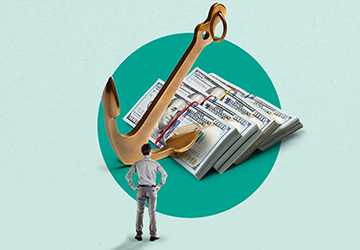5 Tax and Expense Management Tips for Freelancers to Save $300+ Monthly
Juggling taxes, tracking expenses, and budgeting can be challenging for freelancers trying to build their businesses while keeping more money in the bank. However, you can easily trim $300 or more from your monthly overhead with some strategic financial moves.
This guide will explore five critical tax and expense management areas where freelancers often overspend or miss savings opportunities. You’ll learn easy ways to reduce tax obligations, maximize write-offs, control expenses, and leverage tools to boost monthly cash flow.

Whether you’re a freelance writer, designer, consultant or other solo professional, these practical money-saving tips will help you keep more of your hard-earned income.
Read on to find simple steps anyone can take to get finances in shape and savings soaring.
Why Do Freelancers Must Learn About Money Management?
When you work for yourself, you need more financial infrastructure than traditional company employment. That means piecing together your process for tasks like:
● Estimating and paying quarterly taxes
● Tracking income versus expenses
● Budgeting irregular income
● Maintaining records to maximize deductions
With diligent money management, it's easier to overpay taxes, lose potential write-offs, or lose track of cash flow.
But getting finances organized not only saves money; it gives you peace of mind. Read on for five key areas to address.
5 Essential Tips to Boost Freelance Financial Health
Get ready to put more money back into your pocket each month with these strategic tips to control taxes and expenses:
1. Estimate Quarterly Taxes Accurately
To avoid penalties, aim to pay 90-100% of your annual tax obligation evenly throughout the year. Underestimating leads to big tax bills.
Use past returns and current income trends to project your annual liability. Make quarterly payments via IRS Form 1040-ES. Consult a tax professional for guidance on withholding amounts.
Staying current on estimated payments prevents stressful, costly tax surprises.
2. Track and Maximize Business Tax Deductions
Don't leave money on the table. Monitor every valid business expense throughout the year to lower your taxable income.
Use accounting software or spreadsheets to capture all expenses. Log mileage for work-related driving. Write off allowable home office, equipment, supplies, and insurance costs.
Also, take all eligible deductions, such as retirement plan contributions, HSA funding, and business travel. Documentation supports write-off claims.
3. Organize and Digitize Records Year-Round
Managing records in real-time makes tax filing a breeze while providing essential documentation if audited. Stay organized by:
● Keeping detailed receipts and expense records
● Having a transparent categorization system
● Scanning and digitizing documents as you go
● Storing paperwork in labeled folders or cloud-based solutions
Establish easy habits now to streamline finances and taxes for tax day.
4. Automate Savings and Bill Payments
Irregular income makes consistent savings challenging for freelancers. Automate transfers so savings happen routinely without thought.
Set up auto-drafts to move 10-15% of earnings into savings accounts. Use bill pay through your bank to set recurring costs. Build emergency funds faster with automated deposits.
Effortless routines prevent forgetting savings and ensure stable cash reserves.
5. Review Spending Habits and Budget Consistently
Carefully review income and outlays monthly to align spending with your current financial situation. Trim non-essentials.
● Categorize expenditures to identify waste
● Cut unnecessary subscriptions, tools, or overhead
● Meal prep and brew coffee instead of takeout or coffee shops

● Unsubscribe from promotional emails, sparking impulse spending
Conscious budgeting allows you to control expenses and bank more each month.
Take Control of Your Cash Flow Today
Now, it's time to implement these money management tips. Even small changes will quickly impact your monthly savings as a freelancer. So what are you waiting for?
Start accurately estimating quarterly taxes, tracking deductions thoroughly, digitizing records, and sticking to a wise budget. Small actions snowball fast, and each saves you serious cash over the long haul. Make sure to leave money on the table due to disorganization or lack of financial diligence.
Take control of your finances today. Build the money management habits that will serve your freelance business now and in the future.





